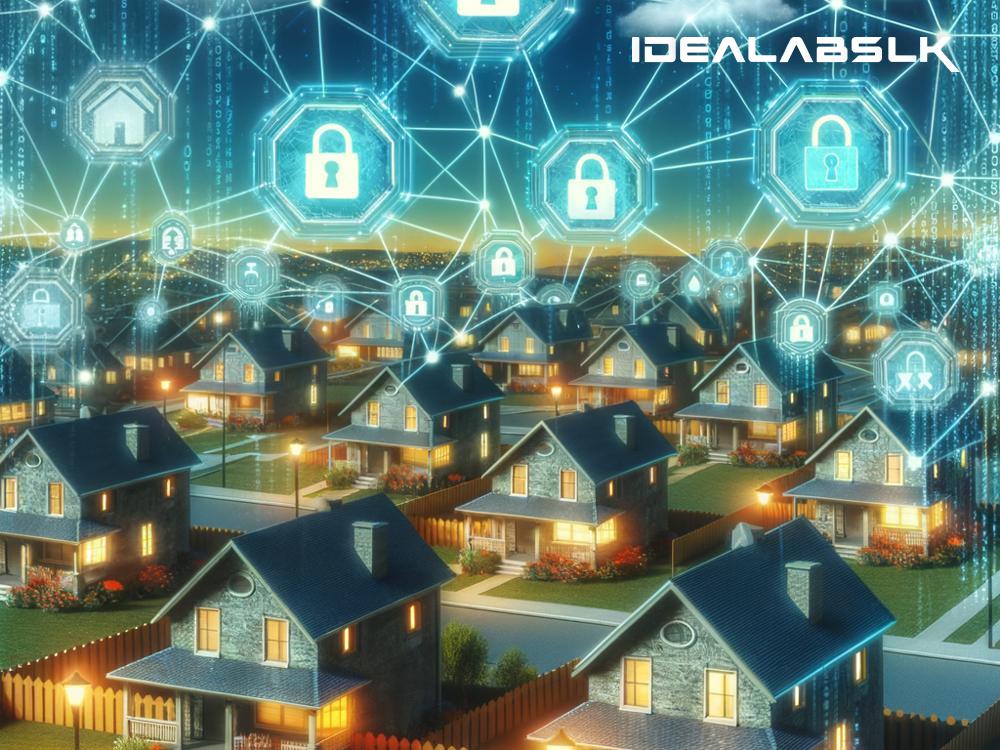Blockchain for Real Estate Customer Data Privacy: Simplifying the Complex
The digital age has brought about revolutionary changes in how we handle and process information. In the real estate sector, these changes have been nothing short of transformative. However, with great innovation comes great responsibility, especially when it comes to managing the sensitive data of customers. This is where blockchain technology steps in, promising a future where real estate transactions are not only more efficient but significantly more secure. But what exactly is blockchain, and how does it safeguard customer data privacy in the real estate world? Let's break it down into simpler terms.
Understanding Blockchain in a Nutshell
Imagine a book where every transaction or change that happens is recorded on a new page. Each page is linked to the one before it, creating a chain of pages or a "blockchain." Now, imagine this book is not held by one person or organization but is duplicated thousands of times across a network of computers. This setup ensures that no single point of failure can corrupt or alter the information stored in the book. That's the essence of blockchain technology – it's a decentralized, secure, and transparent way of recording and sharing data.
The Privacy Conundrum in Real Estate
The real estate industry deals with a vast amount of personal data. From financial information to personal identifiers, the amount of sensitive data handled during buying, selling, or renting properties is colossal. Traditionally, this information has been stored in centralized databases, making it susceptible to hacking, fraud, and misuse. The centralized nature of data storage has always been a privacy nightmare, leading to concerns among customers about how their data is managed and protected.
Blockchain to the Rescue
Blockchain technology introduces a paradigm shift in how customer data privacy is handled in the real estate sector. Here are some key ways blockchain is making a difference:
Decentralization
Unlike traditional databases that store customer information in a single location, blockchain disperses data across a network of computers. This decentralization not only minimizes the risk of data breaches but also ensures that no single entity has control over all the information, offering a new level of privacy and security to real estate customers.
Transparency and Control
Blockchain operates on the principle of transparency. While this may seem counterintuitive when discussing privacy, it actually empowers customers. Transactions recorded on a blockchain are visible to all parties involved but are encrypted to protect sensitive information. Moreover, customers have control over their data, deciding who can access their information and for how long, ultimately enhancing data privacy.
Immutability
Once a transaction is recorded on a blockchain, it cannot be altered or deleted. This immutability ensures that customer data cannot be tampered with, providing an additional layer of security. It brings peace of mind to customers, knowing their information is safe and permanent.
Smart Contracts
Blockchain enables the use of smart contracts in real estate transactions. These digital contracts automatically execute transactions based on predefined criteria without the need for intermediaries. Smart contracts not only streamline operations but also limit the exposure of customer data, as the transaction process requires minimal human interaction, reducing the risk of data leaks.
The Future of Real Estate Data Privacy
While blockchain technology offers promising solutions for enhancing customer data privacy, its adoption in the real estate industry is still in the early stages. However, the trajectory is clear. As awareness grows and technology matures, the integration of blockchain could redefine the standards of data privacy in real estate transactions.
The implementation of blockchain could potentially revolutionize how personal information is protected during property transactions, setting a new benchmark for privacy and security. But for this future to become a reality, the real estate industry must embrace blockchain technology, investing in infrastructure and education to harness its full potential.
In Conclusion
The integration of blockchain technology in real estate signifies a leap towards more secure and private management of customer data. By leveraging decentralization, ensuring transparency, maintaining immutability, and deploying smart contracts, blockchain presents a robust solution to the privacy challenges faced by the real estate sector. While there's still a road ahead in fully adopting blockchain, the path is paved with promise, potentially leading to a future where real estate transactions are genuinely secure and private. As we move forward, it's clear that blockchain technology could play a pivotal role in safeguarding the privacy of customers in the ever-evolving real estate landscape.

